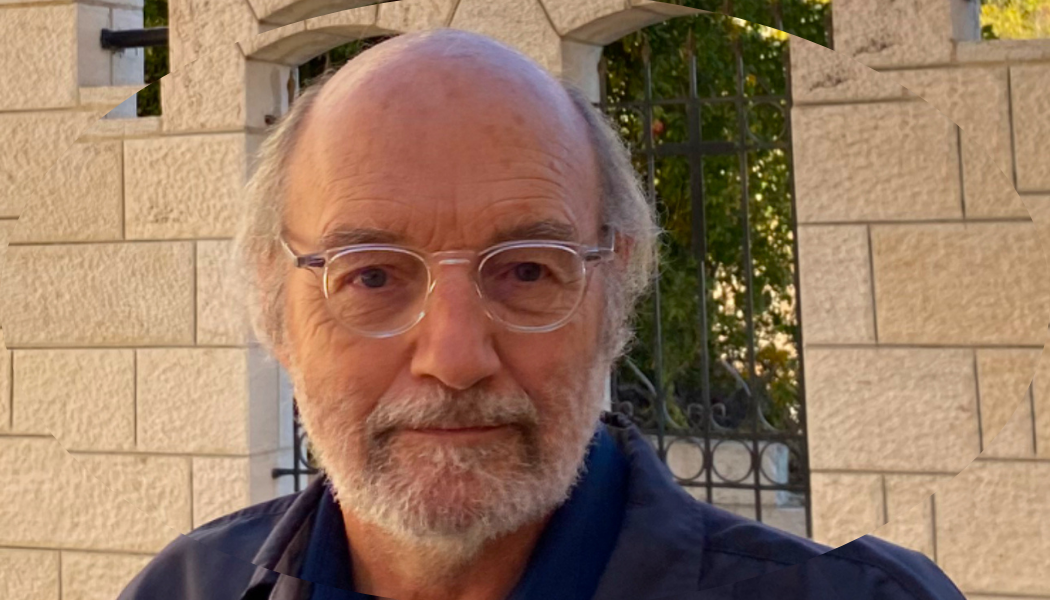Day 9: Laughter as resistance
Today, many of our delegation went to Hebron, the city with the most notoriously brutal history of settler violence against Palestinians. The settlers act with impunity. Absurdly, there seem to be as many soldiers defending them as there are settlers themselves. Every 50 meters or so you see a young soldier burdened with a heavy weapon.
So many checkpoints. At one of them the teen-aged Israeli soldier—most soldiers guarding the checkpoints are teenagers—confiscated a long wooden spoon that one of our delegation members had bought in the local market. To the soldier, it was a club. A weapon. Absurd, but the group waited 20 minutes while Omar, the leader of Sabeel, argued that a spoon was just a spoon. In the end, the proud owners recovered their infamous item. Omar joked afterward that we might have to take turns guarding the spoon all night in our hotel.
Another checkpoint and another delay when the soldier boy on duty was not authorized to turn the red light to green, and had to find his superior. Ridiculous.
Settlers will prevent a Palestinian farmer from harvesting, then soldiers will confiscate the land for being abandoned—and then will give it to the settlers. Absurd.
A detained Palestinian—a journalist—told us there are currently 12,000 Palestinians in detention, including many children. Often these prisoners will not be told of the charges against them or even whether charges exist at all. Since there can be no defense against an unknown or non-existent charge, the conviction rate in Israeli military court is 99.76%. Ridiculous.
The long wooden spoon that was considered a weapon.
Alice Kisiya is one of several resisters who have spoken to us about their experience with these illegal settlers. Thirty of them, mostly un-fearsome under-age boys, came to her family’s house with knives. It’s absurd, she says, that brainwashed settlers think that this is ”their” land. To anyone but a Zionist, this is daft thinking. Alice is frequently smiling. Every one of the Palestinian resisters we have met laugh strikingly often.
The rest of our delegation travelled today to the village of Umm al Khair, in the South Hebron Hills. The Bedouin Palestinians who live there built a playground for their children, with slides and swings and a carousel. The military tore it down. A security risk, they said. The Bedouins re-built it. How does a playground make settlers feel insecure? Apparently because children play there, and smile, and laugh.
Umm al Khair was an eloquent and renowned woman in 7th-century Islamic history. Once before a battle she famously rallied her people by telling them that their enemies would flee like donkeys from a lion. It wasn’t as hard to defeat an enemy they could picture as ridiculous.
Among his many survival skills, Omar from Sabeel is a stand-up comedian. He can see the absurdity in the Occupation. Humour, he says, releases tension, and it gives one perspective. To laugh at means to be apart from. It distances you from what hurts.
Israelis have banned the red, white, green and black Palestinian flag. Today, a national Palestinian symbol is—the watermelon. Its colours are red, white, and green, on a black background. Watermelons appear frequently on wall graffiti, on shopping bags, on magnets for fridges. Maybe the Zionists will ban watermelons.
Satirists know that laughter and a shrug are subversive, and scary to bullies, who despise not being taken seriously. Our delegation group manages to laugh, off and on, all day long.
*About the author
Bill Butt is retired after writing for CBC Television, teaching at Western University in London, Ontario, and thirteen years as Overseas Personnel for the United Church of Canada, based primarily in Angola and Mozambique. He is a member of the CFOS Communications Committee. Along with a dozen other Canadians, he participated in a Solidarity Pilgrimage, November 11-21, 2024, hosted by Sabeel Ecumenical Liberation Theology Center in Jerusalem. Each day of the pilgrimage, he wrote about his personal experience.


